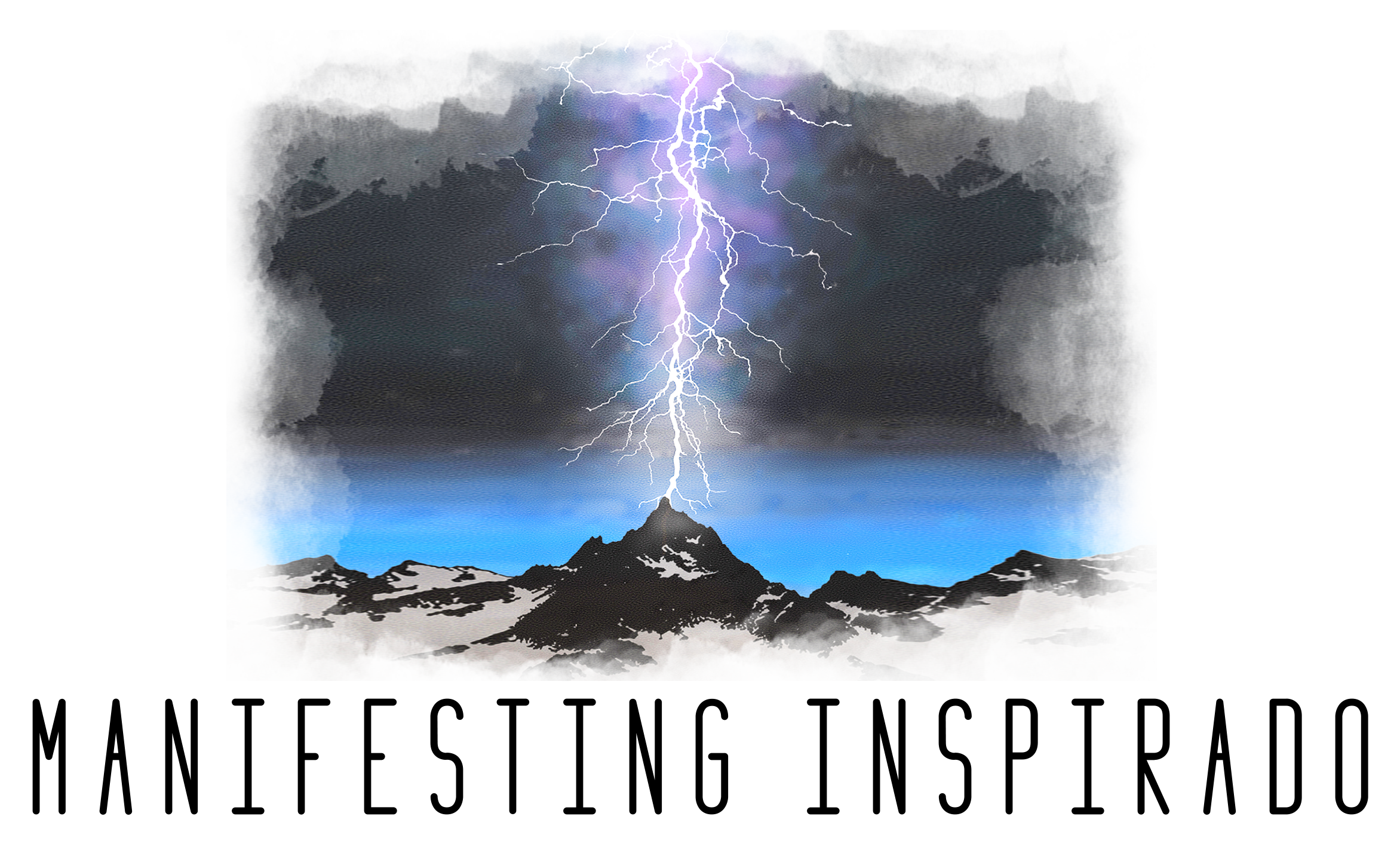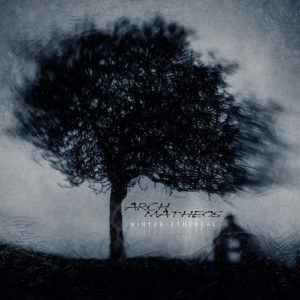John Arch: Vision & Voice
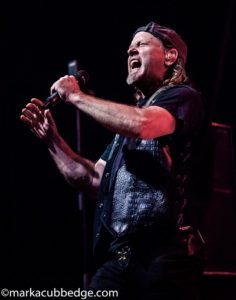
John Arch with Fates Warning at ProgPower 2016
John Arch holds a special significance in my life. From the first Fates Warning album, Night on Brocken in 1984, I was touched by the heart-power of his voice, the magic of his lyrics and his transcendent flow of melody, which seemed to soar to realms of spirit and bring them swirling earthward to awaken my shaken and sleeping soul. Over the years, I’ve learned that I was not alone. Although John stepped away from the music industry after the release of the third Fates Warning album, Awaken the Guardian, the music he co-created continues to inspire and uplift fans around the world. In 2003 and 2011, he returned with two compelling collaborations with his friend and former Fates bandmate, Jim Matheos. Now in 2019, comes the brilliant new Arch/Matheos collaboration, Winter Ethereal – the perfect time to talk with John about singing, songsmithing and the spiritual power of music.
Naia: These past couple of days I’ve been immersed in listening and reading the lyrics for Winter Ethereal. There’s a lot to absorb. This album feels like it’s on another level than the projects you and Jim have done together before.
John: Every album that you do, you’re stepping into new territory, because you don’t want to be repetitive. In the early years, it was all about using your imagination with the music and getting off of this planet for a little while and leaving your problems behind. About doing what I did in the video for Straight and Narrow, taking your bag of catharsis and throwing it away and taking a musical journey. I think it resonated with so many folks, but we’re not doing an Awaken the Guardian 2. You want to step outside the box. You want to do something new and different.
Even taking this project on was different, because, for the first time in my life, I actually approached Jim to say, “Hey, look do you feel like doing another album?” I felt I had a little bit more to offer creatively and I just had that itch to start working again. I asked him and the timing worked out perfectly. Jim was really excited to do it. Sympathetic Resonance was a little bit different, because some of the things were written with Fates Warning in mind. With Winter Ethereal, we started with a clean slate. We were like, “Okay, let’s see what happens. Let’s get together and see if we still have that creative thing between the both of us.”
Naia: What was the process like?
John: The way we work together is Jim will write these musical compositions.Then I will take them and listen to them until four o’clock in the morning and it’s time to get up for work and I’ve had no sleep. That’s how intensively I listen to it over and over again, hundreds of times. I take what Jim writes and I get somewhere in my quiet spot, when I’m almost falling asleep in a semi-conscious state, I interpret what he is trying to convey. I am more of an emotional person,
so I interpret things emotionally a lot. The music is the impetus which strikes the emotion in me. In that half-dream state, that energy comes forward. It could be one word at a time or one vocal line at a time, but then I just know instinctively that’s the direction I need to take it.
Naia: They call that a hypnagogic state, that liminal state when you’re dropping into sleep. That’s when things come up from our intuition and we can sometimes latch onto a seed of something that could grow.
John: That’s supposed to germinate. Absolutely, It’s a spark. It’s intuition. Whether the melody starts to come first, or whether it’s the rhythmic movements, or maybe the lyrical ideas, whichever comes first, when it strikes a chord, you just intuitively know. It just hits you in a certain way. I can actually feel it in my gut.
When I was working on Kindred Spirits, for instance, I’m listening to this composition with no lyrics and no melody ideas yet. It is beautiful, but being a 13-minute epic, it was overwhelming to me, because there was so much going on. I’m listening to all the movements of the song, and in my subconscious, somehow, somewhere, I had been seeing a lot of posts on social media on what animals mean to people. I was thinking about what animals mean to me, how they weave into your inner workings in your heart and this bond and this trust. The bridge where I am singing, “Animals, they are more than that to me.” – that actually came first.
From there, I started daydreaming. I got into that dream state I’m talking about where I close my eyes and I was just imagining. As I was listening to that song, I had a vision of an animal that’s abused, that has been in a bad situation, in darkness, shaking and in fear. With those components, the lyrical ideas started to come. I thought to myself, “I wonder if this is something that’s too jaded to sing about?” The more I got into it, and the more ideas that were coming to mind, I felt so strongly that I said to myself, “Okay, just go with it and follow your intuition.” That’s what I did. In the end, that’s one of my favorite songs.
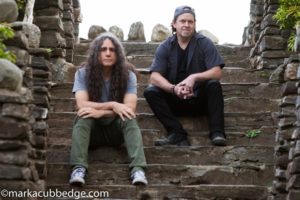
Jim Matheos & John Arch
Naia: Heeding our inner guidance is the key.
John: Absolutely. It seems like in my life whenever I follow my gut instinct and my intuition that always works out for me. When I try to take a different path to satisfy someone else, it doesn’t feel right. If I write something, and I’m not passionate about it, then I am going to be half-assed, half-heartedly singing it. That’s not good for me, because in order for me to get that kind of energy and to actually sing the way I sing, I think you really need to be passionate about it to make it work.
Like the song Solitary Man that I wrote, that is semi-autobiographical. As I’m older, just turning 60, you start to learn that, you give yourself away and you live a lifetime where you’re at everyone’s beck and call. You don’t take care of yourself, but you’re taking care of everyone else. I wrote that song saying that I am going to be more nurturing to my own existence and take care of myself a little bit better. I’m always there to help and always do what I can, but sometimes you spread yourself too thin. That song is almost like liberating. I say it in a sense, like, being a Solitary Man, you’re thinking about somebody sitting alone somewhere, but I have my introvert and I have my extrovert and I deal with them both. I do need to take my trips out alone and do the things that I need to do away from the human voice, away from civilization. A lot of us do that. Actually, hearing nothing in my head is great sometimes.
Naia: I can feel that impeccability in your music. It’s very authentic and heart-centered.
John: The music itself is a dance of the heart and then I think the lyrics on top of it. The lyrics have to come full circle. They have to have a message. Everything has to make sense. If the lyrics are full of meaning, that contributes as a whole. The melody lines have to be a certain way and I think a song needs energy. Everything is done by feel. That’s what music is all about.
Naia: You mentioned melody lines. You have such a unique approach to melody. I always think of this word peregrination. It means a long, meandering journey or pilgrimage. That’s how your vocal lines are; they peregrinate, taking us on a wandering exploration.
John: That’s so fascinating. I don’t know how to explain this, but I know exactly what you’re saying. I’m almost unaware that I’m even doing it. It’s almost like a natural thing that just comes to me. The thing of it is, when I’m listening to Jim’s music, I hear these melody lines in my head. I know sometimes the melody lines seem busy, but it’s something that I like to do, that interwoven thing. I like to layer and interweave between the base chords and what Jim is doing to make it interesting, but also complementary.
There are a myriad of ways to take one melody line, like, one sentence, there are so many possibilities. In my head, it’s almost like a photographic memory. I have melody lines going through my head, many different options. As I sing them out loud, I’ll hear an alternate take in my head. It’s a process of doing that over and over. Until I hear it the way I think it flows, then I feel satisfied, then that’s my goal. I just want to dance around what is underneath, but still just touch on it and be flighty like in that peregrination, is that how you say it?
Naia: Yes, peregrination.
John: Actually, I didn’t even realize it was something I was doing. People are pointing out to me, “John, your melody lines are so different,” and I’m like, “I’m not hearing it that way. I’m hearing what I want to do and what is coming natural to me.”
Naia: What you’re describing is the shamanic concept of medicine. Our medicine is an authentic gift, which often comes so naturally to us that we don’t think anything about it. We take it for granted, but when we express it, it touches people’s lives. The music you create with Jim is medicine.
John: I never looked at it as medicine. You’re bringing the words that are actually dead on. It summarizes what the fans write to me. The fans connect with the music and they tell me how it’s fit in their life, and it’s made their lives fuller, how much it meant to them, because they’re going through difficult times and so forth. They can reference it from 35 years ago. However long, it’s been a staple in their life. The word medicine is so à-propos to what you’re talking about.
Naia: Music is healing. At the Arch/Matheos show in Hartford in 2012, you said working on Sympathetic Resonance had brought you to a deeper understanding about the healing power of music. I don’t know if you remember this, but you were acknowledging that so many people in the house that night were themselves musicians. You were telling them, “Keep doing what you’re doing, because you never know who you’re touching.”
John: Those were my words?
Naia: Yes. I was really struck by it. I thought, “This is a whole lot of truth.”
John: It is. It’s a lot of truth. I’ve been asked many times what’s been the most rewarding part of music. Really, I always go back to the fans, because, when I hear the real life things that happened to people in the connection with the music, that’s the most rewarding thing that could happen. It supersedes anything else.
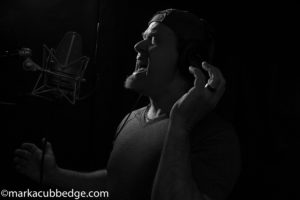
Magic in the Making
Nobody gets through this life without battle scars and being unscathed. We go through all this confusion in life, trying to find out who we are, what’s our purpose and maybe we think we don’t have a purpose. For a long time, I felt that way, that I never fit in and I was just an outcast or whatever. 10 years ago, I was diagnosed as bipolar 2. It answered so many questions for me I always felt, because there was no question I thought differently. My thought-process, I don’t know why, but it wasn’t mainstream. Knowing your demons, learning something about me, has answered an awful lot of questions. I’ve come to a place where I try not to be that self-critical person that I’ve been taught to be all my life. I try to look at things as more of a gift. I have something that I need to work through, but I’m not the only one. We’re finding out that there are a lot of people that go through the same things. That doesn’t mean you don’t have anything to offer. We’re here to help each other.
With the music, I found something that made me feel like I fit in with my way of thinking. I just found such enjoyment, after I got through all the nerves and all that stuff, that’s part of who I am, that’s my inner workings. Once I get past all that and you find that reward at the end of that rainbow when you’re playing in front of all the fans. And they are out there. You’re looking at them. They look so grateful. They’re so into it and they’re singing every word. People are crying.
Naia: Yes, we’re weeping.
John: Oh my God, it’s just so overwhelming. For me, I felt that I had some kind of purpose. You know what? It’s not just me. It’s like there’s so many artists out there that’s why they do what they do is, because they want to offer a piece of themselves to help them, but also help others too. The music has been an avenue for me that, for some reason, I felt drawn to a long time ago. It’s enriched my life and it’s really given me a path to follow. Just as music can save someone else’s life, it very well could have saved mine too.
Naia: Yes, definitely purpose! If you ever question that, know that in this area of your life, and I’m sure there are many other areas of your life where this is also true, but in this one area alone, be assured that this is a life well spent. Because you have profoundly touched so many people and we deeply appreciate it. Your words, your approach to melody, your voice calls out something better in us. There’s a transcendent note. That’s what people are responding to. Getting to see you perform in Hartford & Atlanta was so powerful for me and others. Any chance of a live performance in support of this album?
John: No, it’s not that I don’t want to do live shows. First, let me just say, I realize what the live experience means to fans, because it means the same to me. When you go to a concert, it’s just an amazing experience. It really is. It’s hard to put it into words what the human species, what we’re capable of, that kind of communication and the feeling that you go away with. You’re left with such a good feeling that you just experienced something that means something to you.
As a performer at the beginnings of the show, I am at an alternate universe somewhere, totally worried about everything. It takes me a while to actually relax. That flight and fright thing starts to settle down a little bit and I actually can absorb and see what’s going on around me. That’s when it really starts to become enjoyable. You can’t fully live the experience unless you’re in a state of mind where you can connect with the fans. That kind of energy, believe it or not, they’re feeding off my energy, but I’m feeding off their energy as well, so it works both ways. It’s almost like, I thank the fans for getting me through these shows, because their energy is absolutely incredible. You know what, I think everybody has it. We just don’t know. Everybody who loves music and can experience it, they have it also, but we just don’t know what it is or how to put it into words. There’s the communication going on there. They’re communicating to me as well as I am. I am trying to do my job to convey the music as best that I can. Just such an out-of-body experience, but so much fun.
But right now I have made some promises, promises I want to make, to be present in my own personal life. It may not look like it, but I’ve been behind the scenes, since Sympathetic Resonance, leading into the DVDs and the shows and then writing this for two years. I’ve been burning the candle at both ends and I need to take some time. I’m going to go back to my life as it was, which I always do. It seems, that works for me. Things find a way to me. (laughs) Things end up happening. It’s just the way I think it’s worked out and it works out better.
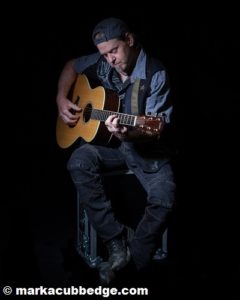
A Twist of Arch
Naia: I utterly respect that. I just want to say, and I think I’d probably speak for Arch fans everywhere, that we would wait ‘til the time is right. Then, even if there’s only one show, we would travel to be there. (laughs)
John: I know and I appreciate that. I’ve seen it before. It’s incredible.
Naia: Because, for me, I can’t speak for anyone else about this, but for me, it’s not just the experience of what you would be bringing, but it’s also our chance to give the love back.
John: I felt that before, I’ve seen it. Let’s just say that, hopefully, life will bring us full circle again. I appreciate the fans so much. After Sympathetic Resonance, the fans requested a follow-up album. I’m more than happy that we were able to offer this album as a thank you to the fans. I’m hoping that this music brings them joy, and it brings them creative thought and just brings them a place away from suffering.
Naia: That’s beautiful. Thank you so much for taking time to talk to me. Is there anything else you’d want to share?
John: I just want the fans to know that, especially at this juncture, it’s been so many years and it’s tried and true, and the kindness that is sent my way is so much appreciated. It’s made my life so much better. I know, the fans want to show me appreciation. It goes full circle. I think it’s a win-win situation and I’m very grateful for every opportunity that’s been afforded to me. I hope to see them in the future.
Naia: In Peru, the indigenous people have a principle of ayni. On the most basic level, it means reciprocity, the harmony that comes from reciprocity. On a deeper level, it means yes! If two people are in ayni, they are yes! to each other, at an authentic level. Those moments when people come and see you when you’re performing, and then you look out there where there’s just yes! Those are moments of ayni.
John: That’s the most simplistic, beautiful way of saying it. Hopefully there will be more yes! moments.
__________
Follow Arch/Matheos on Facebook, Instagram & Twitter.
For more insight into John’s creative process, check out this excellent interview by Mark Cubbedge.
